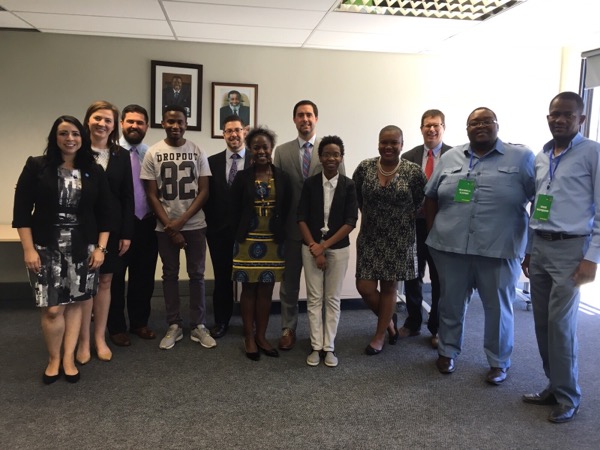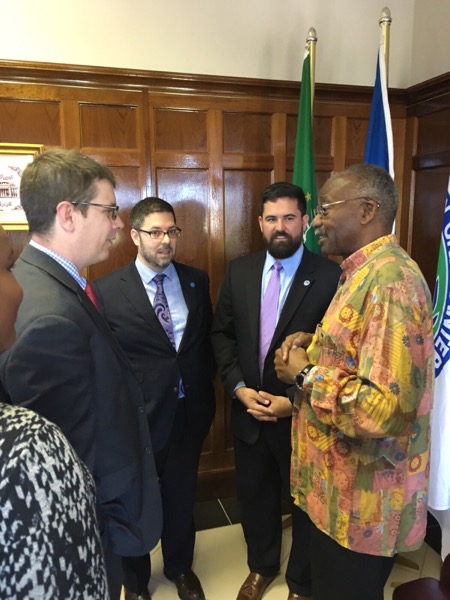

Our ACYPL crew has only been here two days, but a couple things stand out about Namibia: It's complicated, it faces huge challenges, but nonetheless it is working.
In the 25 years since independence, Namibia has gone from a poor undeveloped nation with little infrastructure to a functional place, with improving infrastructure. It's also reached "middle income status" meaning that per capita GDP is over 6,000US a year.
It's clear that one of the keys to success is the intentional effort to empower NGOs, who could supplement government spending by accessing grants designed to support countries that are on the path to development.
And in many ways, it's a model for Africa. The place is competently run, they've had multiple peaceful transition of power, corruption doesn't seem to be as bad as other developing countries, and education & youth empowerment is a priority.
Foreign investment is at the root of much of that success.
Here's the thing: That success has put Namibia in a tough space. They no longer qualify for much of that funding because of the aforementioned middle income status. Their success has turned off the spigot that helped them get to here.
And here's the problem: despite that income number, there is no discernible middle class. Poor here is as bad as I've seen in Manilla or Guat City, but because of the income growth at the higher end, the average fails to tell the story. As a result, both the government and the NGOs stand to lose millions that would allow them to do their work.
This really is a hopeful & innovative place. Yet the future still feels tenuous. They haven't dealt with inequality or land reform, issues that have felled success elsewhere. But there seems to be a commitment to make it work.
From kids working on HIV prevention to others building leadership trading programs for new officials, there is a forward lean to the place. And it's a warm & welcoming place.
But what does the next 25 look like? Will the international community continue to invest? Can the country deal with the big issues?
It could go either way & hopefully the next two days will give some clarity. There is definitely a risk of the Zimbabwe model taking root, though I don't think so. This feels like a place to bet on, if for no other reason that this government endorsed NGO structure seems determined to get them to the promised land.